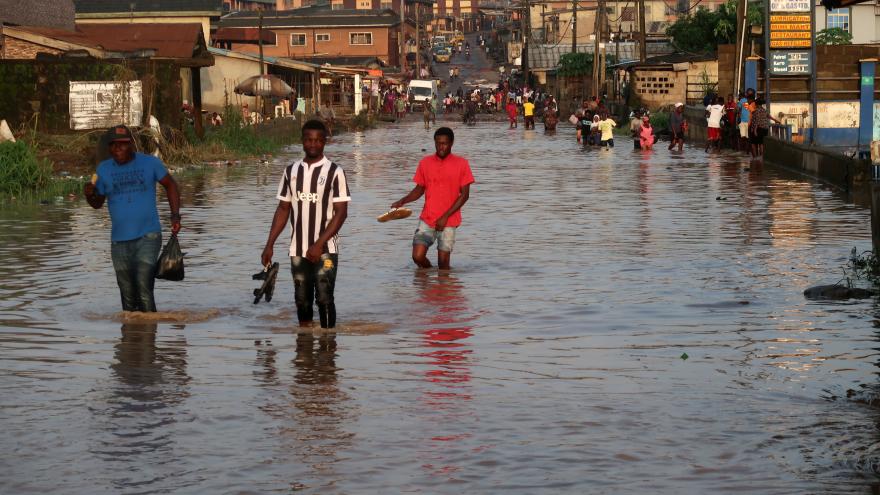Africa’s most populous city is battling floods and rising seas. It may soon be unlivable, experts warn

Welcome to Lagos during rainy season. Residents of Nigeria, Africa’s most populous nation, are used to the yearly floods that engulf the coastal city during the months of March to November. In mid-July, however, the major business district of Lagos Island experienced one of its worst floods in recent years.”It was very bad, and unusual,” Eselebor Oseluonamhen, 32 told CNN. “I drove out of my house … I didn’t realize it had rained so much … There was heavy traffic on my route because of the flood. The more we went, the higher the water level. The water kept rising until it covered the bumper of my car … then there was water flowing inside my car,” Oseluonamhen, who runs a media firm on the Lagos mainland, recalled. “As a result of heat-trapping pollution from human activities, rising sea levels could within three decades push chronic floods higher than land currently home to 300 million people,” the study said. “By 2100, areas now home to 200 million people could fall permanently below the high tide line,” it added.Global sea levels have been “There is a lot that must be done and will take consistent and deliberate actions on the parts of various stakeholders for Nigeria to properly take climate actions, especially in adapting to the impacts that are already threatening our livelihood,” he added.An environmental activist, Olumide Idowu, urged government authorities to partner with the private sector in order to boost funds to tackle the issues.”Government should look at private sector partnerships in order for them to drive climate finance to solve the flooding issues,” Idowu told CNN.Nigeria’s economy has struggled in recent years, shrinking financing for climate change and other critical sectors. Authorities are nonetheless still pledging to ramp up the country’s climate change response.Last month, Nigeria’s Ministry of Environment announced a presidential approval for a revamped national policy on climate change, aimed at addressing “most, if not all, of the challenges posed by climate change and climate vulnerability in the country,” a spokesman for the ministry wrote in Twitter post.




